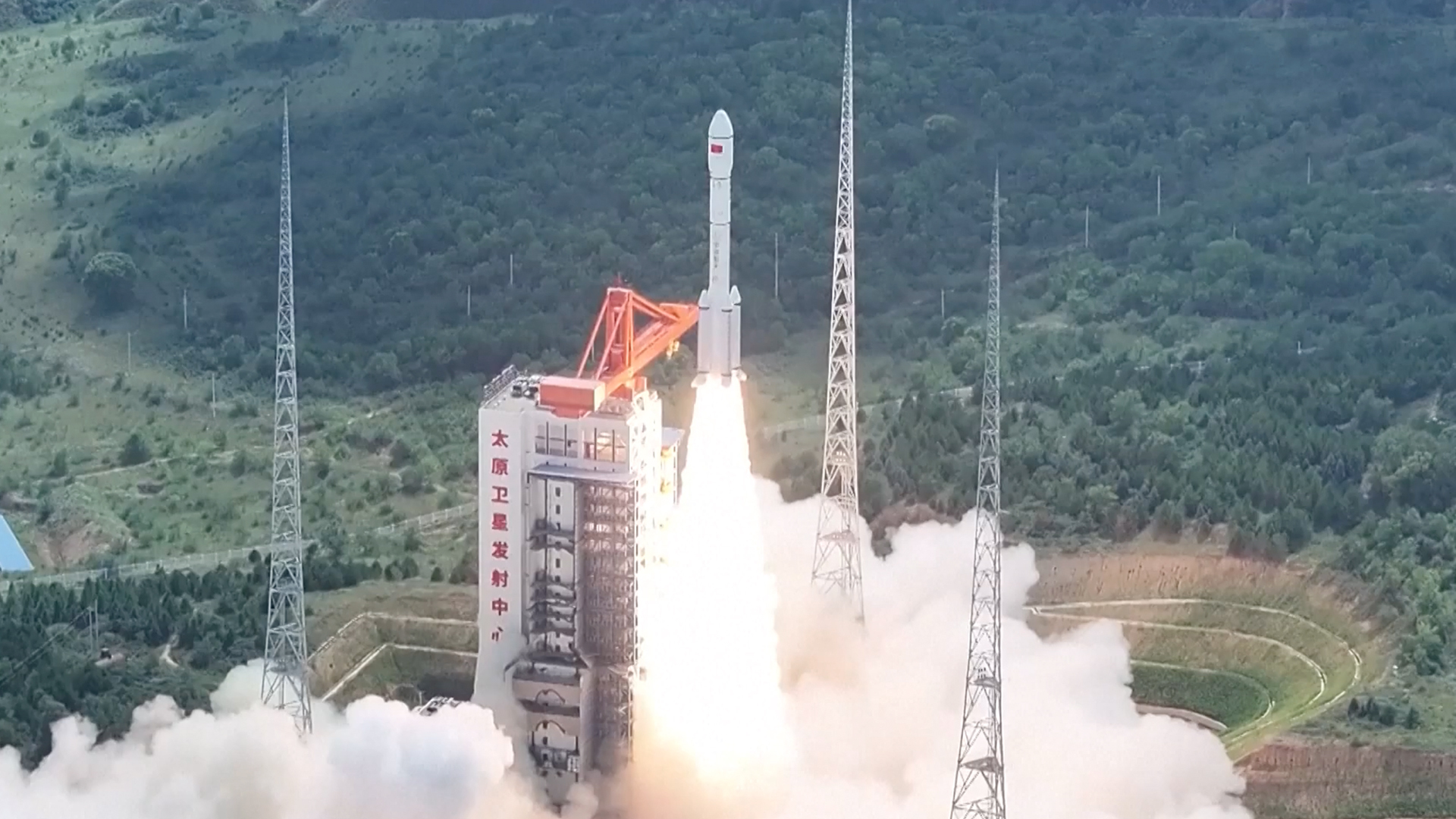
China has begun building a huge satellite-internet constellation in low Earth orbit.
A Long March 6A rocket lifted off from the Taiyuan Satellite Launch Center in north China today (Aug. 7) at 2:42 a.m. EDT (0642 GMT), carrying 18 Qianfan ("Thousand Sails") satellites to low Earth orbit (LEO).
Everything went well, according to the China Aerospace Science and Technology Corporation, which declared the mission "a complete success.

Qianfan will be a Chinese version of SpaceX's Starlink LEO megaconstellation, which beams internet service to users around the world using more than 6,200 satellites.
That number is growing all the time; SpaceX has already launched more than 50 dedicated Starlink missions this year, with many more on the docket. Elon Musk's company already has permission to deploy 12,000 Starlink spacecraft in LEO, and it has applied for approval for another 30,000 on top of that.
Qianfan won't be quite that big, but it's in the ballpark.
"The satellites are similar to the V1 Starlinks, with flat-panel morphology and a mass of 300 kg [660 pounds] each. This 'G60' constellation is planned to eventually have 14,000 satellites," astrophysicist and satellite tracker Jonathan McDowell, of the Harvard-Smithsonian Center for Astrophysics, posted on X shortly after today's Qianfan launch.
The Qianfan satellites will apparently orbit at an altitude of about 500 miles (800 kilometers), he added in another post. That's higher than the Starlink constellation, which orbits at about 340 miles (550 km).

Qianfan will be operated by Shanghai Spacecom Satellite Technology, a company backed by the Shanghai municipal government, according to Reuters. And it won't be the only Chinese broadband megaconstellation, if all goes according to plan.
"The national Guowang (SatNet) 13,000-satellite project is being run by the China Satellite Network Group, set up in 2021," SpaceNews' Andrew Jones wrote today, in a story about the Qianfan launch. "Its first batch of satellites is also soon expected to launch. However updates on the project are few and far between."







